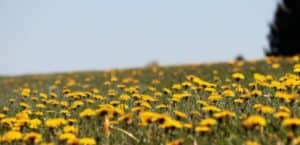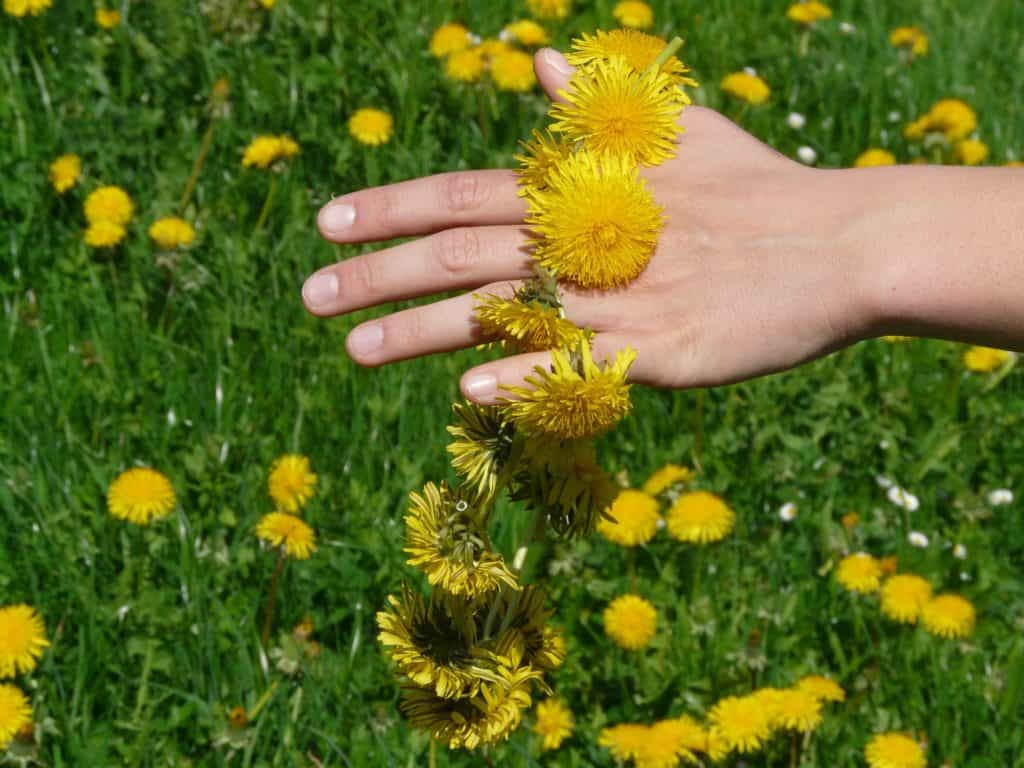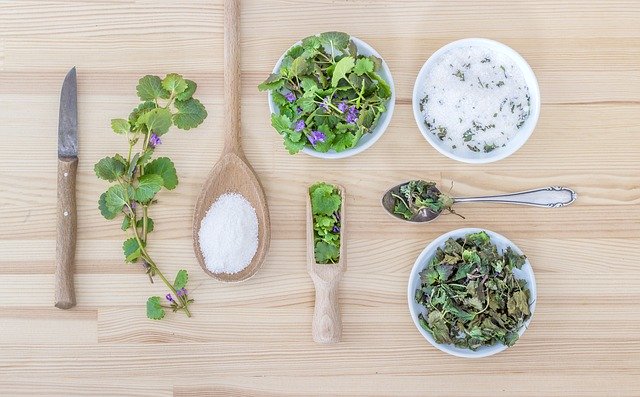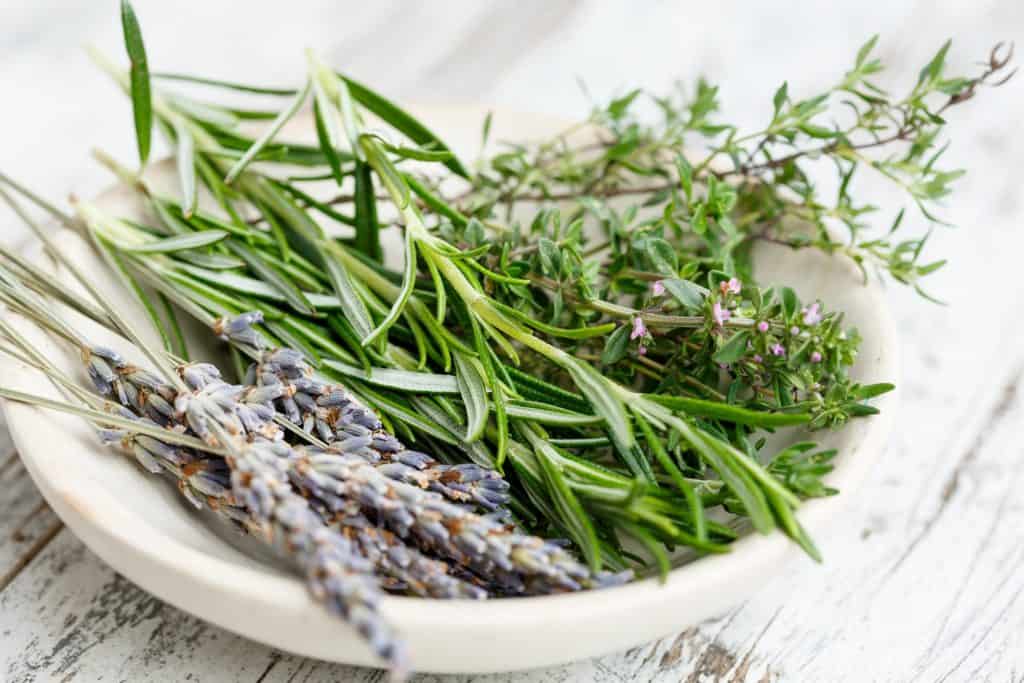Every aspiring home herbalist needs to grow their knowledge of common herbs right along with their herb gardens. Today, I’m highlighting a common weed, dandelion.
Throughout this series, you’ll be introduced to 8 common medicinal herbs and weeds and how you might want to use them in your home apothecary. Of course, there’s much more to know about each plant, but hopefully this will be enough to inspire your curiosity. Especially about the common weeds that grow in your yard.
Useful, beautiful and abundant
Dandelion is another of those plants found growing freely out in the yard. It’s a delight to some and a obnoxious weed to others. Your opinion about this prolific grower will depend on whether you value it as a plant ally or not.
The dandelion plant is full of many good-for-you things. High in calcium, potassium, and vitamin A. It’s also pretty tasty in salads or dipped in batter and fried, although the fried option may not be as healthy as the salad. Still, it’s worth a try if you’ve never had it before. It tastes a lot like fried mushrooms.
The entire plant can be harvested in early spring, roots and all. The plant can then be used fresh in herbal preparations or dried for later use.
It’s been used to help with liver function and as a powerful blood cleanser. It can help to make your skin clear and remove toxins from your body.
Dandelion is known to help people who have trouble with indigestion since it has a laxative property, thus, cleaning things out of the body is its specialty.
This common yard weed is also great for beer and winemaking. Thus, preserving the healing goodness of the plant can be enjoyed all year long.
You will only want to harvest these from places that haven’t been sprayed with chemicals or that your pets haven’t used as a bathroom. Roadsides aren’t a good choice for collecting these favorites either since they absorb chemicals from car exhaust. After harvesting, a good soak in vinegar water will clean out any bugs that might have tagged along for the ride.
Here are some of the things the dandelion plant has been known to help with:
- Acne
- Age Spots
- Appetite
- Asthma
- Blood purifier
- Digestion
- Eczema
- Gall Stones
- Laxative
- Liver cleanse
- Low blood pressure
- Rheumatism
- Ulcers
- Weight loss
Dandelion For Skin Care Products
If you would like to add dandelion to skincare products, you can make an oil infusion with the leaves. Just add the leaves to the olive oil in a jar with a lid. Then store it in a cool, dark place for a few weeks. Give the jar a good shake now and then.
When the infusion is ready, the plant material is strained from the liquid. This will leave behind a powerful skin healer that is very beneficial when added to salves and face creams.
After you’ve made the oil, you can spend the winter months experimenting with making fabulous skincare products for your friends and family.

Dandelion Stir Fry Recipe
1 small onion chopped
1 tablespoon olive oil
2 cup dandelion leaves chopped
carrots grated
garlic minced
1 teaspoon wine
1 teaspoon soy sauce
Salt and pepper to taste
Cook onions in oil until soft. Then add in the rest of the ingredients. Cook for 15 minutes or so, until all is blended and cooked to taste. Experiment with flavors and add-ins you enjoy.
Summary of Dandelion
If up until now, you’ve only considered dandelion as a weed, I hope this will help you see it in a different way. If you’ve already been enchanted by this “weed”, then I hope you’ll be inspired to try using it in new ways. Maybe add it to recipes or your home apothecary. If you don’t want to harvest it yourself, you can always buy it. I recommend Mountain Rose Herbs.
Blessed be.
Other Posts in this Series
What is Plant Medicine? The Basics.
Learning Plant Medicine for Beginners
Start your Own Home Apothecary: Tools & Methods
8 Plant Medicines Found in your Kitchen
Plant Medicine to make in the Fall
Disclaimer: I’m not a medical doctor or an herbalist. This article isn’t intended to be medical advice. Not all plants are safe to use. Some are toxic and can be deadly. Other herbs may cause an allergic reaction in some people. Always consult your doctor, healthcare provider or a qualified herbalist before using any type of plant medicine.



